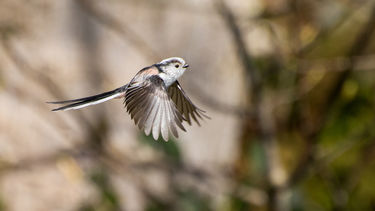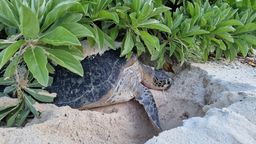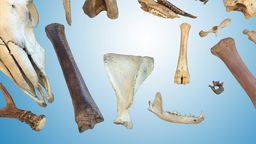Ecology and Evolutionary Biology

Our research
We're driven by our curiosity to understand how the natural world has evolved and operates. Together we work to answer fundamental questions in ecology, conservation, and evolutionary biology, addressing key global challenges facing biodiversity and humankind.
We're working to unravel the wonder of speciation, how organisms compete and coexist, and how they respond to a rapidly changing environment. We seek answers to some of the biggest fundamental questions in biology: How has the rich diversity of species evolved? How are sexual conflicts resolved? How are genetic variation and biodiversity maintained? And how do species and complex communities respond to climate change and other threats?
Solving these problems provides the foundations from which we address key challenges facing humankind, including conserving biodiversity in the face of global environmental change and ensuring the sustainability of ecosystem goods and services that the growing human population requires. Through our world-leading science, we help policymakers, industry, and conservation practitioners to develop real-world solutions to these applied challenges.
We do this by taking a multifaceted and interdisciplinary approach to the study of ecology and evolutionary biology that draws upon genomics and laboratory experiments, computational modelling and big data analysis, remote sensing, environmental economics, and fieldwork from the UK’s Peak District to tropical rainforests. Using a diversity of study organisms, from microbes and plants to insects and vertebrates, we're interested in evolutionary and ecological dynamics across organisational scales--from molecules, genomes and individuals to populations, communities, and ecosystems.
Research highlights
People
For further information and research opportunities, please see the staff page of individual researchers below:
- Professor Umberto Albarella
- Professor Andrew Beckerman
- Professor Tim Birkhead
- Professor Terry Burke
- Professor Roger Butlin
- Professor Peter Calow
- Dr Dylan Childs
- Dr Stuart Campbell
- Dr Chris Cooney
- Dr Holly Croft
- Dr Luke Dunning
- Dr Karl Evans
- Dr Isobel Eyres
- Professor Rob Freckleton
- Dr Thomas Guillerme
- Professor Ben Hatchwell
- Dr Ellie Harrison
- Dr Nicola Hemmings
- Dr Victoria Herridge
- Dr Fiona Hunter
- Dr Thomas F Johnson
- Dr Kevin Kuykendall
- Professor Lorraine Maltby
- Dr Nicola Nadeau
- Professor Mark Rees
- Dr Maria Val Martin
- Dr Lenny Salvagno
- Dr Mirre Simons
- Dr Kimberley Simpson
- Professor Michael Siva-Jothy
- Professor Jon Slate
- Dr Gavin Thomas
- Professor Philip Warren
- Dr Penny Watt
- Dr Tom Webb
- Dr Alison Wright
Research centres and institutes
Our research on Ecology and Evolutionary Biology is supported by and feeds into the following University Research Institute.
Research facilities and services
Within Ecology and Evolutionary Biology, we manage and run the following facilities
The Genomics Laboratory Facility
The NERC Environmental Omics Facility
Fellowship opportunities
We are keen to support early career researchers in developing applications for independent research fellowships that align with our broad interests.
As part of the School of Biosicences, and Faculty of Science, we aspire to be a welcoming and inclusive environment for science researchers, and recognise that some researchers – especially women and BAME staff – may not receive the same support as their peers in applying for fellowships and career progression. For this reason, we are especially encouraging members of under-represented groups to apply to hold an independent research fellowship with us.
We offer long-term Independent Research Fellows an academic position after their fellowship and a PhD student during the fellowship. Within EEB, eligible schemes include NERC Independent Research Fellowships, Royal Society Dorothy Hodgkin and University Research Fellowships, and UKRI Future Leaders Fellowships. For BBSRC Discovery Fellowships, we offer an additional 1 year of salary at the end of the 3-year fellowship, and we can offer matched funding for Leverhulme Early Career Fellowships. We have a strong track-record of supporting IRFs within EEB, and many of our current faculty have come through this route. Due to the support we offer, we have internal selection processes that can start several months before the funder deadline, so we encourage applicants to get in touch early. Please complete this short, initial expression of interest form, so we can start a conversation with you. Applicants should ideally contact us about a year before the funder deadline, but please do so at any stage, so we can advise you and help to develop your application.
Further details on IRFs at the University of Sheffield and what we offer, can be found here https://www.sheffield.ac.uk/science/research/fellowships.
Informal enquiries can also be directed to Nicola Nadeau (n.nadeau@sheffield.ac.uk, head of the Ecology and Evolutionary Biology research cluster) or Gavin Thomas (gavin.thomas@sheffield.ac.uk, researcher development lead of the Ecology and Evolutionary Biology research cluster).



